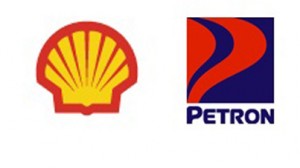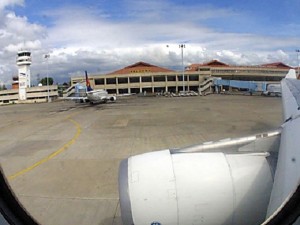
The Supreme Court effectively slapped new taxes on aviation fuel suppliers after it denied in a recent decision the excise tax refund claims of Pilipinas Shell and Petron, the Joint Foreign Chambers said.
MANILA, Philippines—The Joint Foreign Chambers is urging the government to scrap the excise taxes on jet fuel as it describes Manila to be “the most expensive place in Asia to fuel an aircraft.”
The chamber issued a statement on Thursday warning that the new taxes threaten the Aquino administration’s tourism targets and cripple the country’s effort to improve competitiveness.
The Supreme Court effectively slapped new taxes on aviation fuel suppliers after it denied in a recent decision the excise tax refund claims of Pilipinas Shell Petroleum Corp., the group said.
Both Shell and Petron earlier filed claims for refund of excise taxes paid for jet fuel sold to international carriers. The Court of Tax Appeals ruled in favor of Shell, but the Bureau of Internal Revenue elevated the case to the Supreme Court, which then ruled in favor of the government agency.
As a result, aviation fuel suppliers have no choice but to pass on the higher costs to foreign carriers, effectively making the Philippines the most expensive fueling destination in the region.
“Due to the Supreme Court’s decision, fuel suppliers are not permitted to recover excise taxes directly from the government. Instead, the suppliers will be forced to increase their fuel rate to recover their own tax costs. The airlines ultimately bear the additional expense, to be passed on to passengers once their fuel surcharge is approved. This will negatively affect the tourism industry as well as business and government travel,” JFC explained.
The group further said it supported the recent statement of the Board of Airline Representatives which said that the new taxes “are a clear and blatant attempt to avoid the Philippines’ own laws and obligations under international agreements intended to provide tax relief to international carriers.”
The new taxes may undermine the reform measures and initiatives undertaken by the government on behalf of local aviation and tourism industries, and further weaken the country’s competitiveness. The Aquino administration and Congress had already exempted the carriage of passengers of international sea and air carriers from the tax on Gross Philippine Billings (GPB) on the basis of reciprocity, and removed the 3-percent Common Carriers Tax.
This important reform in the 15th Congress was meant to protect the Philippine tourism industry which was then seriously threatened due to the increasing number of withdrawals of foreign airlines from Philippine operations.


